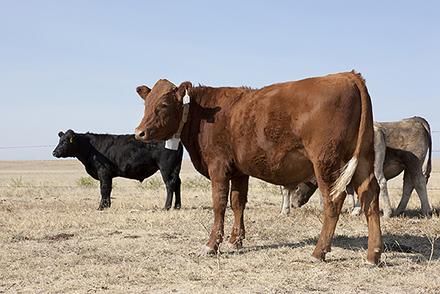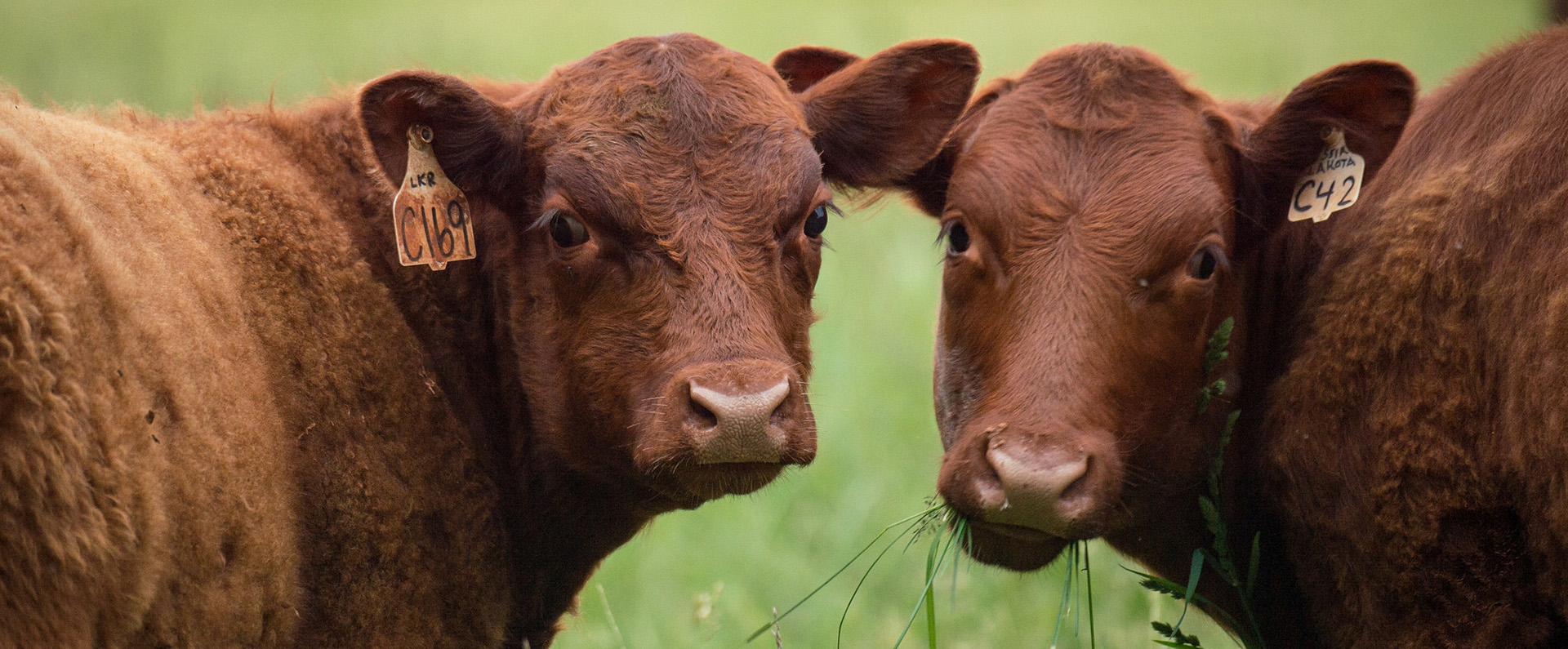Monitoring Animal Health … Precisely

Instead of uniform rates of water, fertilizer, or pesticide, precision farming calls for giving crops only what they need—when they need it and where—for optimal health and productivity. This can cut down on costs, conserve resources, and help safeguard the environment, among other benefits. But precision farming isn’t just for crops; the practice also applies to managing livestock animals.
ARS researchers in Woodward, OK, have fitted beef cattle with special collars to monitor their movements and behavior. The researchers download the information to a computer and analyze it in relation to each animal’s body mass as opposed to taking a group average. This allows better estimates of the relationship between individual animal’s use of the pasture and its productivity in different feed or pasture management regimens.
Elsewhere, ARS researchers are testing precision farming technology to continuously monitor the health, welfare, and performance of swine. Besides helping producers adjust their management practices, the technology could speed their detection and treatment of sick pigs.
Researchers are also testing imaging methods to better sort pigs by their market weights as well as monitor sow behavior for information on farrow crate designs and sizes. The latter is important in preventing sows from accidentally crushing their piglets.



